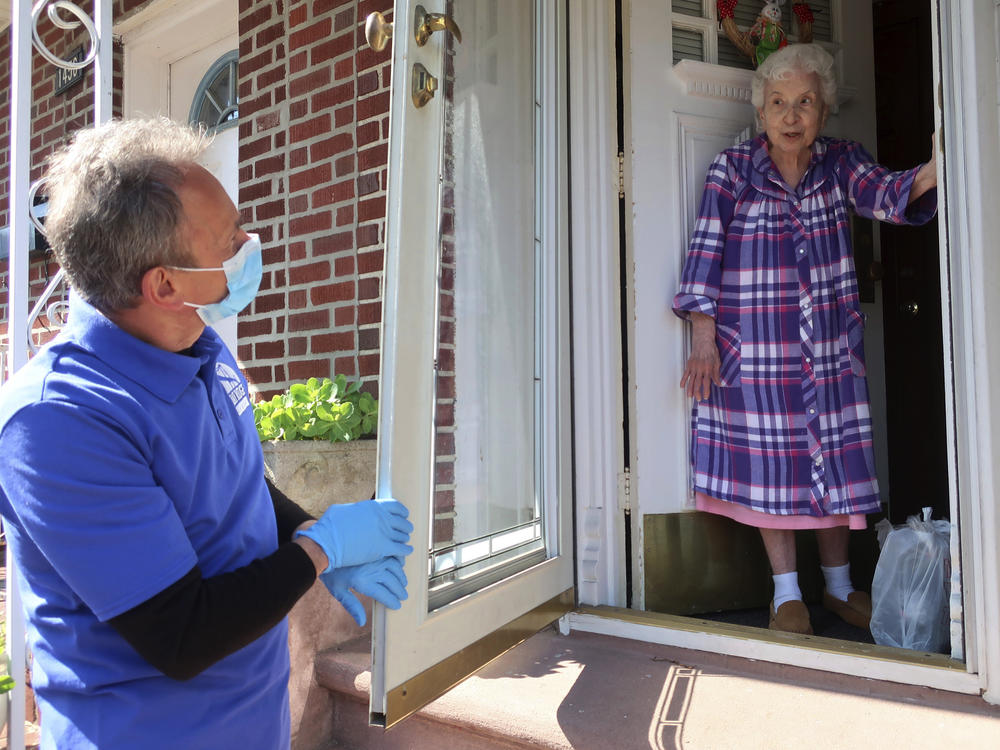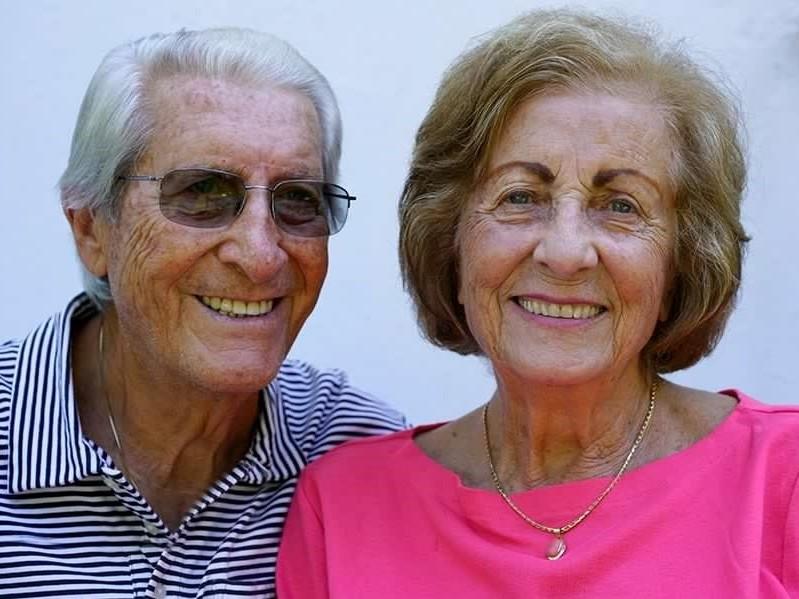Section Branding
Header Content
Amid Isolation And Loneliness, Elderly Face Crumbling Safety Net
Primary Content
Growing up in the 1930s in a small, marshy town in the Calabrian region of Italy, Rose Frusciante was constantly bombarded by mosquitoes. But one bite in particular proved dangerous.
Frusciante, who is now 85, still remembers the sweating, fever and chills that followed as well as being heaped under blankets and all the clothing she had as her mother desperately tried to keep her warm. The tiny bite had given her malaria, which also claimed the lives of three of her siblings.
Still, Frusciante, who now lives in Mount Vernon, N.Y., says there is no comparison between the insect-born disease and the invisible threat that is the coronavirus.
"I'm afraid to go out," she says. "Because if you walk outside, somebody may have it and they don't even know."
According to the Centers for Disease Control and Prevention, eight out of ten deaths during the pandemic have been among seniors like Frusciante. And while seniors are among the first in line for the vaccine, other safety nets in place to catch the elderly are unraveling quickly.
Frusciante's husband died last year and she lives alone in an apartment. She uses a walker to get around. She needs help, but can't afford it on $2,000 a month.
So she applied for a part time aide paid for by the state, she was put on a waiting list with 11,000 names of seniors like her.
Since the pandemic began, demand for help from seniors has ballooned. New York state has 3.2 million people aged 65 or older. At one in six residents, that's more than ever before, and more than the entire population of many states.
According to the National Association of Area Agencies on Aging, the most recent round of federal aid for seniors has left a gaping $575 million hole nationwide. For a state like New York, which is already grappling with a budget deficit of billions, that means its system meant to help protect seniors is left straining — tens of millions of federal aid dollars short.
Jay Bhattacharya, who teaches medicine and studies aging at Stanford, says the fate of a senior citizen today often depends on how much they've saved during their working years.
"In many ways, the experience of older Americans mimics the experience of the rest of the population," he says. Those who have considerable savings and retirement security are doing better.
"It mainly is rich versus poor."
For seniors with limited income, the problem is exacerbated by a shortage of home health aides. In Mount Vernon, the Department of Senior Programs and Services says many are afraid of riding the bus to work for fear of catching COVID-19.
Agencies that supply elderly people with aides say they are now forced to compete with hospitals facing staff shortages. And with much of school moving online, aides are facing a care issue of their own. If they go to work, who will watch their children?
Beth Finkel of AARP New York says that when seniors won't or can't go out and family or aides aren't going in, a troublesome snowball can start to form — isolation and loneliness.
In normal times, it's hard to live without someone to squeeze your hand, help you put on a favorite sweater, or reminding you to swallow a pill from one of those little plastic cups.
"Our research shows that being isolated is equal to smoking 15 cigarettes a day," she says.
According to the CDC, isolation and loneliness can lead to an increased risk of dementia, stroke, heart disease — even suicide.
But with the pandemic, another kind of safety net is disintegrating — the kind created by the daily social interactions seniors might typically have with a waiter at a coffee shop or a teller at a bank.
"If that is not in place, if people can't get out to visit those sites, then who's going to be able to say, 'Oh, no! Mrs. S. doesn't have a winter coat on today?' " she said.
As she stays inside and waits for help from the state, Frusciante says she is not scared to die.
"I mean, we're all going to die," she says. "I'm afraid to go in a place in a hospital clinic and I am dying and I couldn't even see my family."
But what does devastate this woman, who has lived through a world war, the assassination of a president and more, is having to wave hello to her two grandchildren through a window.
"That killed me, not to touch my grandkids," she says.
Copyright 2021 NPR. To see more, visit https://www.npr.org.


